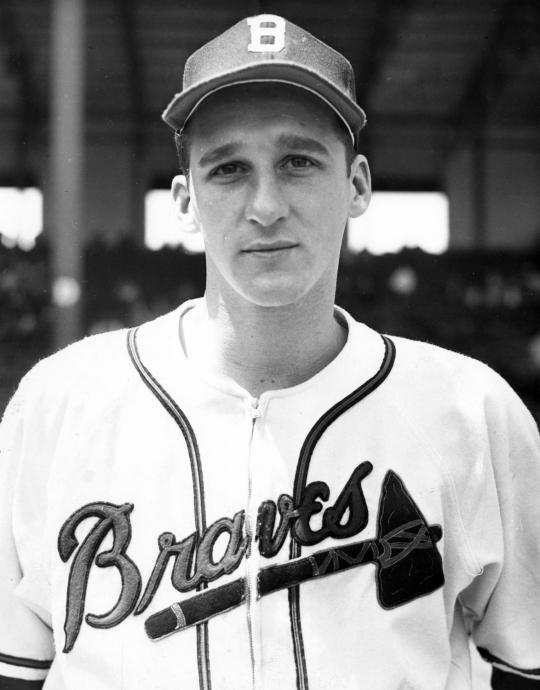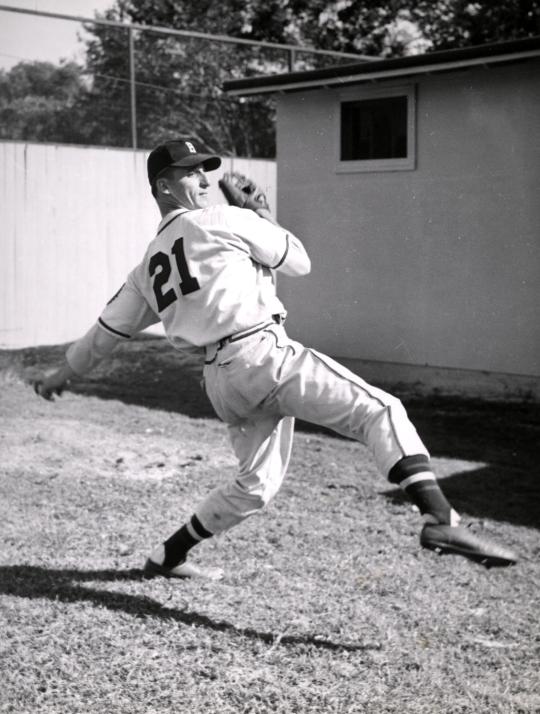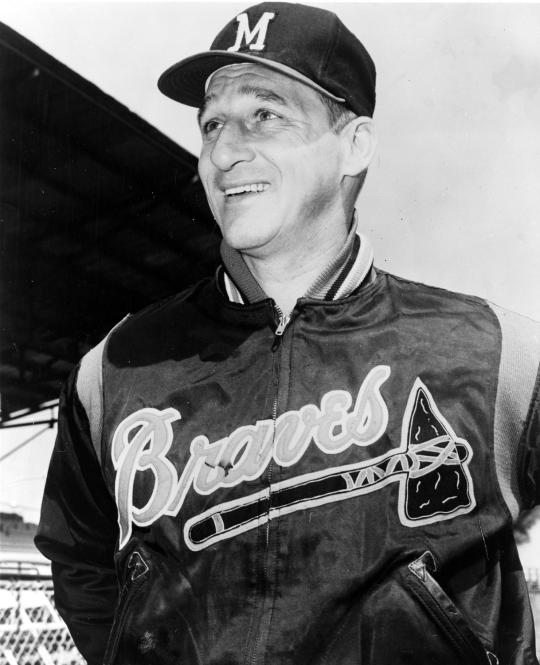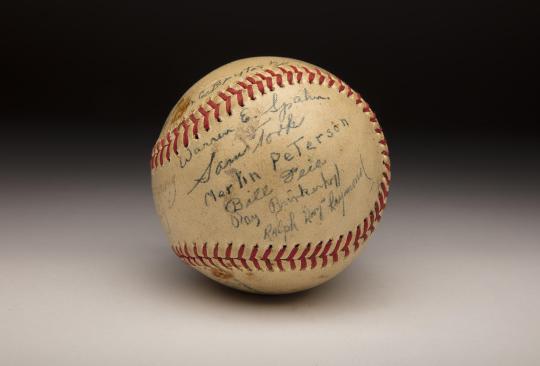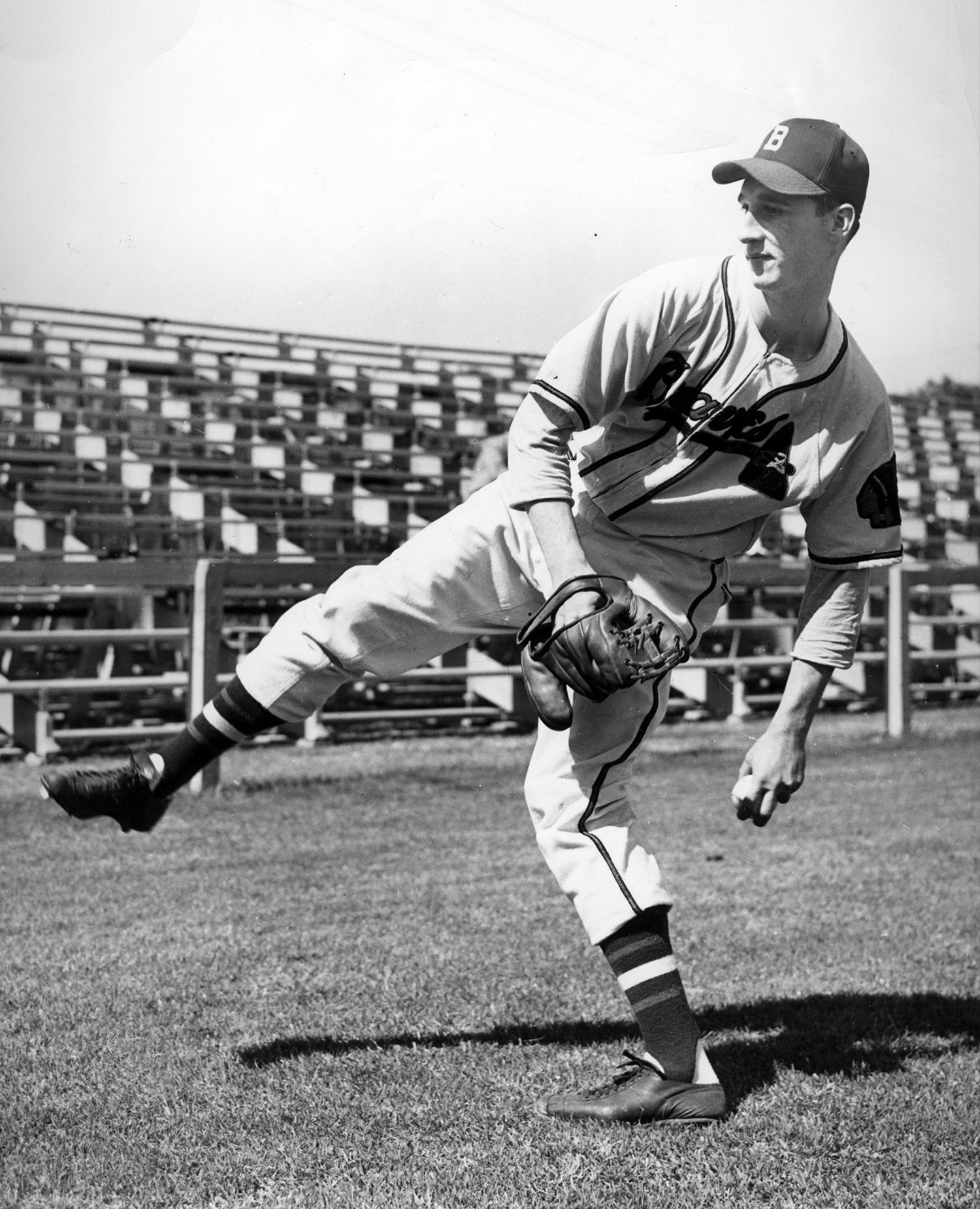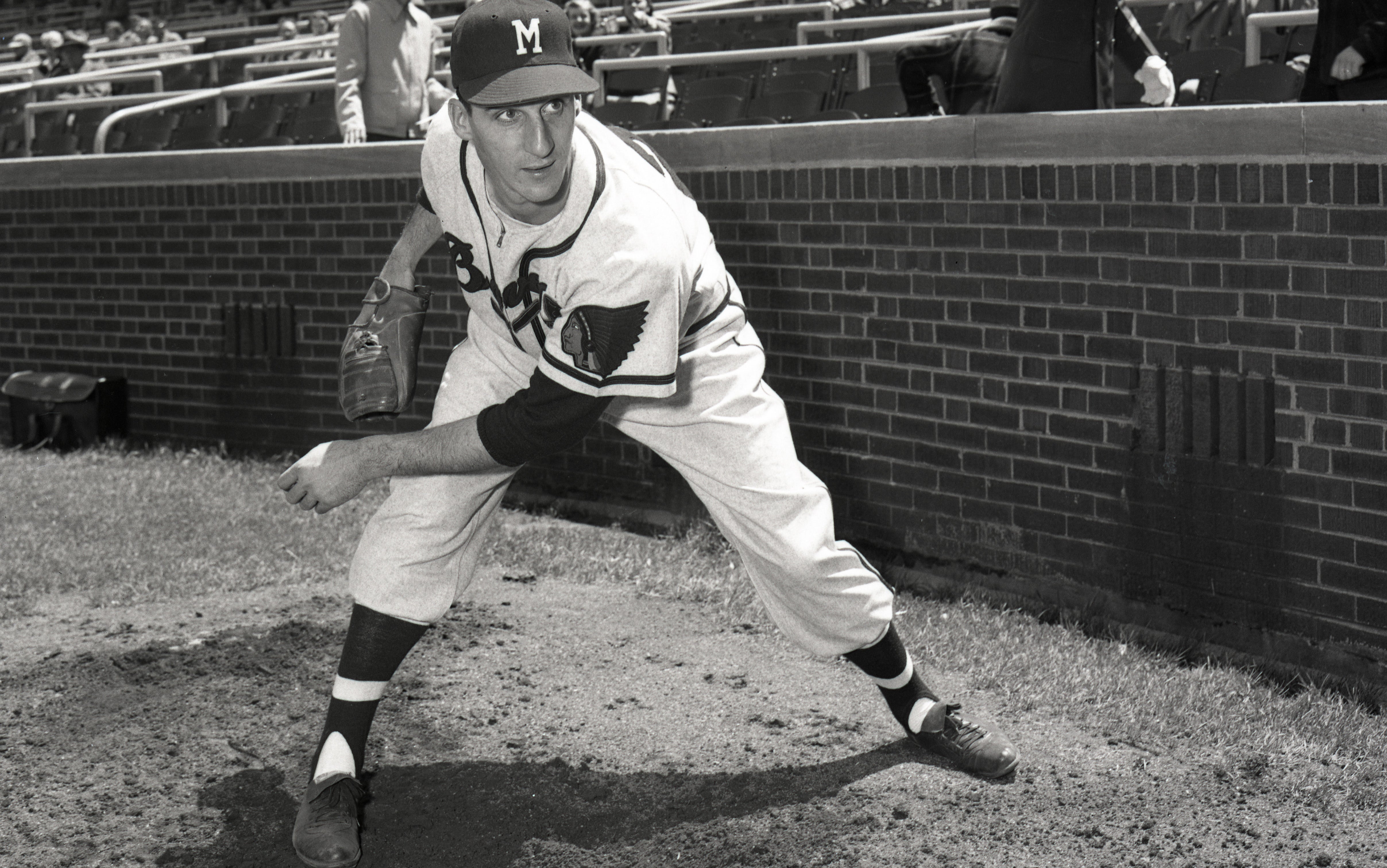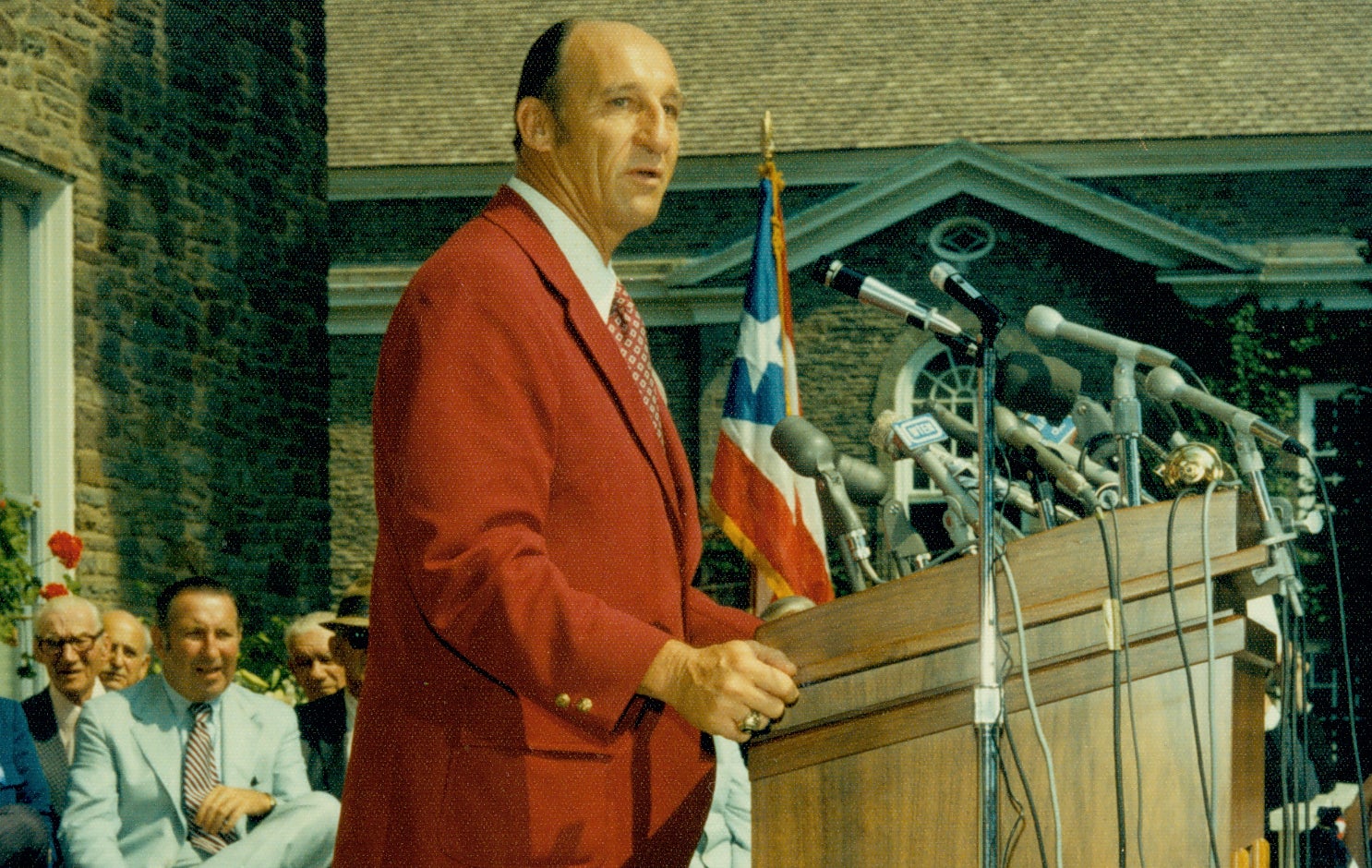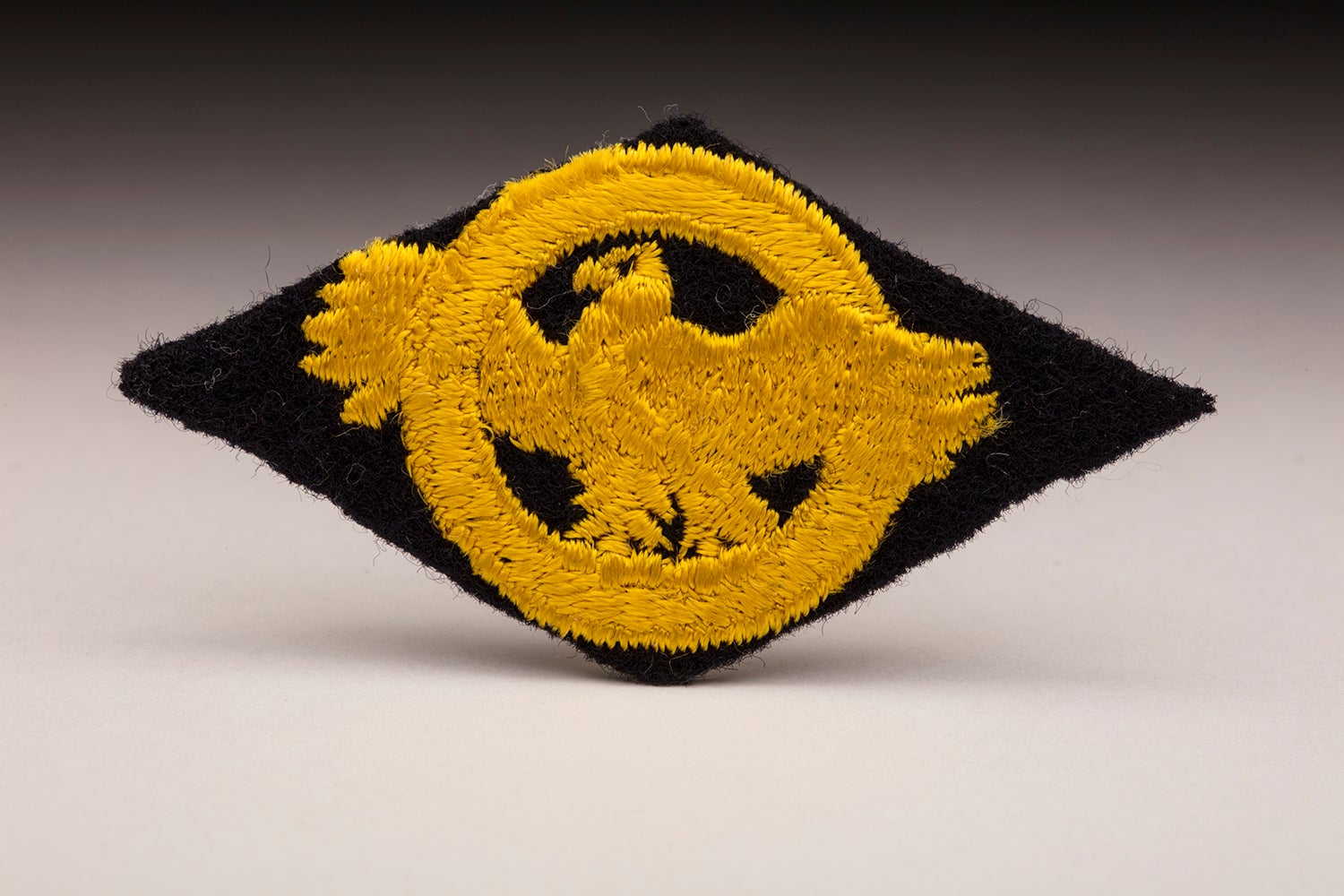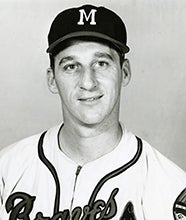- Home
- Our Stories
- #Shortstops: A ball from a hero
#Shortstops: A ball from a hero
A donation to the National Baseball Hall of Fame and Museum reminds us that Warren Spahn not only battled on a big league pitching mound for more than two decades, but was also in a number of life-or-death battles while serving in the United States military during World War II.
It was 73 years ago, on Sept. 2, 1945, that aboard the USS Missouri in Tokyo Bay, Japan formally surrendered to the Allies, bringing an end to WWII. For Spahn, the southpaw twirler with the picture-book delivery whose 363 victories would lead to a bronze plaque in Cooperstown, his career would ultimately be put on hold for three-and-a-half seasons while in the Army.
While serving in Europe, Spahn was in the heart of the action, including participating in the Battle of the Bulge and in the taking of the bridge at Remagen in Germany. Having started out as a private, Spahn was discharged in June 1946 as a first lieutenant.
A true war hero, he was awarded a Purple Heart for a shrapnel wound, a Bronze Star for bravery and a battlefield commission.
Hall of Fame Membership
There is no simpler, and more essential, way to demonstrate your support than to sign on as a Museum Member.
It was a few years after trading in his baseball uniform for a military uniform when Spahn was wounded at Remagen Bridge during the war. Though he didn’t often speak of his war time service – his wife didn’t even know he was a Purple Heart recipient prior to their 1946 marriage – the lefty gave a harrowing account of one such experience to Boston Globe sportswriter Harold Kaese in 1950.
“On March 10 (1945) I was with the 276th Combat Engineers Battalion attached to the Seventh Armored Division when we heard Remagen Bridge was taken and we’d work on it. We were mighty nervous because it was about the only bridge left across the Rhine,” Spahn said. “We went up at midnight, get in an hour’s work, and then started ducking German shells. We pulled back and went in later. Every time we went in they’d throw more shells. So we quit.
“At six o’clock in the morning we found a 15-year-old German kid, a civilian, right under the abutments with a telephone. He’d been telling an observer everything we did,” he added. “We finally got the bridge in fair shape and were ready to send tanks and trucks across. My platoon was supposed to relieve another at four o’clock in the afternoon. We were in a truck near the bridge, so I got out to see the lieutenant I was relieving, about where his men were stationed.
“We talked in the middle of the bridge awhile, then we left. It wasn’t 10 minutes later that the bridge collapsed. It sounded like machine guns blasting as the rivets came loose. Bombing had weakened it, or we had too much weight on one end. A fellow from Pennsylvania who hadn’t been on the bridge all day, went up to get a piece of equipment just as the bridge gave way. We never saw him again. That’s fate for you.”
It was at Remagen that Spahn was wounded in the right foot and leg by shrapnel and was awarded a battlefield commission to lieutenant.
Despite a delayed start to his extended big league pitching career due to military service, Spahn became the winningest left-handed hurler in the game’s history. In a 1982 interview with Chicago Tribune sportswriter David Condon, Spahn claimed to have never wondered what his win total would have been had he not missed more than three seasons while serving in the Army.
“Never entered my mind,” Spahn said. “Maybe not as many. Going to service matured me; I learned so much. Had I not gone to war I might have been shipped back to the minors, or ruined my arm. So no regrets. I’m grateful I got out of the military in one piece.”
According to Spahn in an interview late in his playing career, the lessons learned during WWII put his future experiences in proper perspective.
“The Army taught me many lessons, the most important of which was never to think of anything I was told to do in baseball or anything I told myself to do as hard work. You get over feelings like that, I assure you, when you’ve spent days on days sleeping in frozen tank tracks in enemy-surrounded territory,” Spahn said. “Anything I tackle in baseball or out of it these days, I take on as a welcome challenge rather than work.”
With the WWII near its conclusion in May 1945, Spahn, along with many ballplayers serving in the military, got back on the diamond in Allied-occupied Germany following the Nazi surrender. Playing for the 115th Engineers in a series of games in Heidelberg, Spahn was cited in newspaper reports as: “The hottest pitcher in Germany is Lieut. Warren Spahn, Boston Brave-owned hurler last with Hartford. Over a recent four-game stretch, Spahn allowed only one unearned run in hanging up a quartette of decisions, allowed nine hits and struck out 73.”
Records show that Spahn defeated the 19th Corps team in three straight, giving up four hits and striking out 20 in the first game, giving up only one single and striking out 18 in the second, and giving up two singles and striking out 19 in the third. The fourth win came against the 32nd AAA Brigade, when he allowed two hits while striking out 17.
A baseball signed by members of the 115th Engineering Group, with “Warren E. Spahn” among the 14 signatures, was recently donated to the Hall of Fame by Richard Avitable, whose father played on the team.
“Before the war I didn’t have anything that slightly resembled self-confidence,” Spahn told the Associated Press in August 1946. “Then I was tight as a drum and worrying about every pitch. But now I just throw them up without the slightest mental pressure.”
Spahn, who was elected to the Hall of Fame in 1973, passed away on Nov. 24, 2003, at the age of 82.
Bill Francis is the senior research and writing specialist at the National Baseball Hall of Fame and Museum

